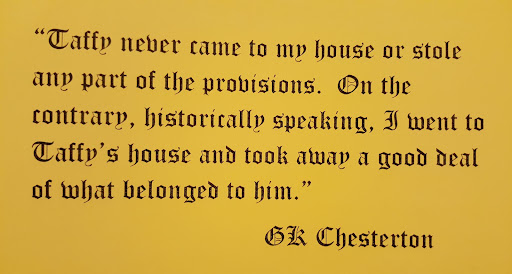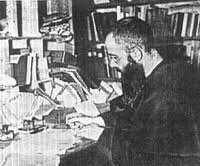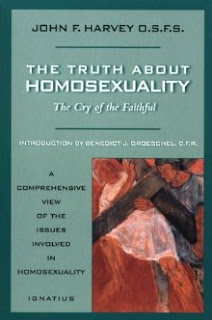
So we went to the Michael Voris talk last week in London, took our nephew as a Birthday treat! All was going very well, 100% Catholic and not ashamed to say so and if needs be to offend people. "We all need to give more time to Christ, not just in prayer but in studying The Faith. But time is precious, so give up stamp collecting and devote that time to studying The Faith!" Well I almost stood up and shouted 'Amen!'
Then he said, are people over here as mad about golf as we are over there? (He's one of those Americans, tax rebels I call them!) I will never watch golf again, that may be too hasty for an Ent, but I was on a roll!
And then it happened, some nasty sly Gollum type creature in the crowd (without a ticket no doubt), it may have even been an orc, said, "no, football!" Sorry, where is security, where is the organiser, quick Middle Earth will fall unless that creature is silenced. Too late, Saruman has Michael under his evil spell, "Then give up football" he says.
So what to do? Kill everyone one in the room in case this evil spreads? Give up watching Match of the Day and study The Faith? Remember that he is an American, so he's not talking about Soccer?
Or do we just take the example of Paul Smeaton the organiser (so he's to blame) who arranged this talk on a night when Arsenal, his club, were playing live on television? Well I will leave it to you.
On another point, I must say the talk was incredible and will hopefully be on http://www.realcatholictv.com/ soon. Everyone was there, very high profile Priests, Pro-Lifers of every sort, and a wide range of Catholics. I know there was at least an 83 year old and a 4 year old who both thought it great. There was even a very young baby who was smiling when I saw them. The talk had everything laughs, The Truth, The Faith, and even tears for some. If like me you don't watch many, if any videos on the internet, just click here and here it will be well worth it.
Then he said, are people over here as mad about golf as we are over there? (He's one of those Americans, tax rebels I call them!) I will never watch golf again, that may be too hasty for an Ent, but I was on a roll!
And then it happened, some nasty sly Gollum type creature in the crowd (without a ticket no doubt), it may have even been an orc, said, "no, football!" Sorry, where is security, where is the organiser, quick Middle Earth will fall unless that creature is silenced. Too late, Saruman has Michael under his evil spell, "Then give up football" he says.
So what to do? Kill everyone one in the room in case this evil spreads? Give up watching Match of the Day and study The Faith? Remember that he is an American, so he's not talking about Soccer?
Or do we just take the example of Paul Smeaton the organiser (so he's to blame) who arranged this talk on a night when Arsenal, his club, were playing live on television? Well I will leave it to you.
On another point, I must say the talk was incredible and will hopefully be on http://www.realcatholictv.com/ soon. Everyone was there, very high profile Priests, Pro-Lifers of every sort, and a wide range of Catholics. I know there was at least an 83 year old and a 4 year old who both thought it great. There was even a very young baby who was smiling when I saw them. The talk had everything laughs, The Truth, The Faith, and even tears for some. If like me you don't watch many, if any videos on the internet, just click here and here it will be well worth it.
(Note for my Mum, the photo is of Saruman not Michael Voris)






















